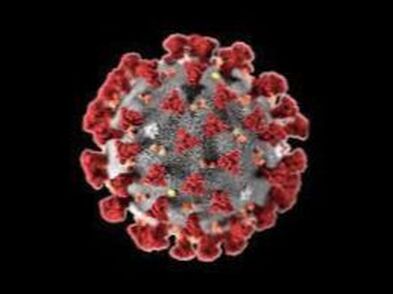“I don’t do ominous,” I told the Lord, emphatically.
But when, in early January of 2020 we were asked to participate in a staff gathering in which we were each invited to share the “word” that God had given us for the coming year, I felt convicted. Normally I don’t get an annual “word” per se, but this year was different. I had no idea – none of us did - just how different the year would be.
I shared with our team that on January 6, God highlighted to me Ezekiel 21:26. “Take off the crown. Raise what is low. Bring down the high,” it read. “Nothing will remain unchanged.” At first, thinking of all the changes that I was hoping for, I was excited. Then suddenly a little apprehensive. Exactly what did he mean?
Later that night I dreamed that Jesus rapped his knuckles on a hard surface to get my attention, then pointed to his own eyes. “Pay attention! A siege is coming,” he said. “Stay focused on me!”
Suddenly, we were in the middle of a global pandemic. Focus on Jesus became an essential practice, as our eyes were drawn to urgent news broadcasts, airport biohazards, border chaos and unnerving trends of panic-stricken protectionism as people rushed to amass and hoard essentials like bottled water and toilet paper, elbowing one another in hostile line-ups at the local Costco.
Amusing at first, then alarming.
In stark contrast, regions of the world where danger, disease, poverty, and persecution have long been normative for Christians, a different trend emerged. In China, the underground Church surfaced to care for the vulnerable, putting themselves at risk not only to the virus but also to authorities that are hostile toward Christianity. The same was true in Iran, experiencing the fastest growth of Christianity in the world. Where death threatens all, it seems that persecution loses its power to repress love.
Not so, with my house.
North America and Western Europe raged against the storm. Intrinsic values have clashed like titans: the thought of sacrificing personal freedom for the sake of protecting the vulnerable with an unproven, potentially dangerous vaccine proved too much to bear. Lines were drawn, and family members retreated on either side, teeth bared and claws out.
Yet there are moments. The Chasid, the Loving-kind Ones, the Saints in the land, in whom is all my delight. They make meals, drop off groceries, call house-bound seniors, learn new technologies, and lean into prayer like never before.
Perhaps I will become like them. Surely, I cannot remain unchanged.
But when, in early January of 2020 we were asked to participate in a staff gathering in which we were each invited to share the “word” that God had given us for the coming year, I felt convicted. Normally I don’t get an annual “word” per se, but this year was different. I had no idea – none of us did - just how different the year would be.
I shared with our team that on January 6, God highlighted to me Ezekiel 21:26. “Take off the crown. Raise what is low. Bring down the high,” it read. “Nothing will remain unchanged.” At first, thinking of all the changes that I was hoping for, I was excited. Then suddenly a little apprehensive. Exactly what did he mean?
Later that night I dreamed that Jesus rapped his knuckles on a hard surface to get my attention, then pointed to his own eyes. “Pay attention! A siege is coming,” he said. “Stay focused on me!”
Suddenly, we were in the middle of a global pandemic. Focus on Jesus became an essential practice, as our eyes were drawn to urgent news broadcasts, airport biohazards, border chaos and unnerving trends of panic-stricken protectionism as people rushed to amass and hoard essentials like bottled water and toilet paper, elbowing one another in hostile line-ups at the local Costco.
Amusing at first, then alarming.
In stark contrast, regions of the world where danger, disease, poverty, and persecution have long been normative for Christians, a different trend emerged. In China, the underground Church surfaced to care for the vulnerable, putting themselves at risk not only to the virus but also to authorities that are hostile toward Christianity. The same was true in Iran, experiencing the fastest growth of Christianity in the world. Where death threatens all, it seems that persecution loses its power to repress love.
Not so, with my house.
North America and Western Europe raged against the storm. Intrinsic values have clashed like titans: the thought of sacrificing personal freedom for the sake of protecting the vulnerable with an unproven, potentially dangerous vaccine proved too much to bear. Lines were drawn, and family members retreated on either side, teeth bared and claws out.
Yet there are moments. The Chasid, the Loving-kind Ones, the Saints in the land, in whom is all my delight. They make meals, drop off groceries, call house-bound seniors, learn new technologies, and lean into prayer like never before.
Perhaps I will become like them. Surely, I cannot remain unchanged.

 RSS Feed
RSS Feed
